
In Pakistan, the formation of a truly democratic government is increasingly hindered by the limited participation of religious minorities. Many Ahmadis, members of a religious group facing severe persecution—and I am one—abstained from voting in the 2024 general election in February for fear of attacks and the discriminatory and dangerous practice of separate voter lists. This exclusion from the democratic process reflects the broader challenges faced by religious minorities in the country.
Amir Mehmood, a community spokesperson, told me that religiously motivated extremists consider it their duty to kill Ahmadi individuals; it is therefore practically impossible for Ahmadis to vote so long as there is a voters list that openly identifies them as Ahmadi.
Pakistan is home to a population where less than 4% of the citizens are religious minorities, including Ahmadis, Sikhs, Hindus, Christians, and others. These groups were registered on separate voter lists from the 1985 general election onwards, but in 2002, President Pervez Musharraf abandoned this practice—except for the Ahmadis.
According to Pakistan’s most recent census, in 2017, 3.53% of the population consists of religious minority groups. The total population of these minority groups is 7,331,246. Interestingly, the Ahmadi population has seen a decline, decreasing from 291,000 in the 1998 census (the last one before 2017) to 207,688 in 2017. However, since many Ahmadis boycotted the censuses, the true figure is thought to be considerably higher—between two and five million.
Nasir Qureshi, an Ahmadi, is a resident of Karachi, the largest city in Pakistan. He has been living and running a business there since 1979. However, he has never voted due to the discriminatory voter list practice. When I spoke to Qureshi, he said that the situation for Ahmadis in Pakistan is the worst it has ever been. Each day, the number of attacks and incidents of hatred against the community is increasing. ‘Like other parts of Pakistan, Karachi is also insecure for the community,’ he told me.
Qureshi stated that discrimination has become widespread and that it is impossible for Ahmadis to vote for fear of being targeted with violence. ‘Until the separate voter list is abolished, I cannot vote and will not vote in the future because it makes us easily identifiable and vulnerable to attacks,’ he lamented.
Still, he was defiant. Although the ‘Ahmadiyya community is being compelled to boycott the general elections and is denied a role in the formation of a democratic government… [It] is our fundamental right to participate in polls because Pakistan is our home country.’
The Ahmadis believe that they are Muslims, but the Constitution and law of Pakistan criminalise this belief. The Constitution of Pakistan was promulgated in 1973 and passed unanimously by the parliament. General Zia-ul-Haq, the military dictator who ruled Pakistan under martial law from 1977-88, passed Ordinance XX of 1984, introducing sections 298-B and 298-C to the Pakistan Penal Code (PPC), which made it a criminal offence for Ahmadis to, among other things, refer to themselves as Muslims, call their places of worship mosques, and give the call to prayer (the Azan).
The National Commission for Human Rights, a statutory body established in 2012, recently released a situation report titled Monitoring the Plight of the Ahmadiyya Community which provides detailed statistics of the persecution against the Ahmadiyya community from 1984 to 2023. According to the report, Ahmadis in Pakistan have faced ‘an astonishing number of legal charges – 765 cases for displaying the Kalima [Islamic prayers containing the fundamentals of the religion], 47 cases for calling the Azan, 861 cases for preaching, and various others.’
These statistics show just some of the ways—there are, sadly, many more—in which the Ahmadi community is persecuted and disenfranchised in Pakistan.
Shedding further light on the persecution faced by Pakistani Ahmadis, the Human Rights Section of the Ahmadiyya Muslim Foreign Mission released a report in February 2024. According to that report, 277 Ahmadis were murdered between 1984 and 2023 because of their faith, and 478 attempted murders took place for the same reason. Additionally, 4,280 Ahmadis were arrested and 202 Ahmadi mosques were desecrated. In 2023, one Ahmadi person was murdered, 133 were arrested, and 39 Ahmadi mosques and 100 Ahmadi graves were desecrated. The report states that in the first couple of months of this year, several mosques were desecrated or attacked, 88 graves were desecrated, one Ahmadi was arrested under the anti-Ahmadi law PPC-298-C, one Ahmadi survived a murder attempt, and six Ahmadi teachers were transferred due to their faith. These statistics show just some of the ways—there are, sadly, many more—in which the Ahmadi community is persecuted and disenfranchised in Pakistan.
Amir Mehmood had this to say about the plight of the Ahmadis:
‘Sadly, we have been marginalized and excluded from the fabric of the state. As Ahmadis, we are also concerned about the future of our country, Pakistan. The actions of the state have cornered the Ahmadis, which is actually against the statement made by Quaid-e-Azam [‘Great Leader’, Muhammad Ali Jinnah], the founder of Pakistan, shortly after the creation of Pakistan [in 1947]. Quaid-e-Azam declared that every person, regardless of their religion or sect, would be free to practice their beliefs and worship in temples, mosques, gurdwaras, and so on.
This is a miserable situation for our community. Everyone, including rights activists, fails to understand why this is happening or why there is a desire to commit genocide against us, even though the loyalty of the community lies with Pakistan. Unfortunately, state institutions remain silent on this critical issue, which has not only damaged the image of Islam but also our country. However, I firmly believe that Pakistan is our country, and we are determined to serve it at any cost.’
Qureshi mentioned that discrimination is prevalent everywhere, including in universities, schools, and other institutions. Youths are also deprived of job opportunities, and their life chances are being adversely affected in Pakistan. Despite lodging several complaints with the relevant authorities regarding these issues, our pleas have been futile.
Excluding the Ahmadis, a majority of voters from other religious minorities in Pakistan also refrained from voting for their favoured candidates due to fear instigated by candidates representing the majority religion, Islam. Approximately 70% of Hindu, Sikh, and Christian voters decided to abstain from participating in the 2024 general election according to Behwish Kumar, a rights activist for religious minorities. He told me that minorities refrain from using their vote out of fear. He added that there is no mechanism to protect minorities from the consequences which would be meted out by opposing candidates.
Mehmood stated that activists have repeatedly approached the relevant authorities to abandon the separate voter list for Ahmadis, but, unfortunately, their requests have been disregarded every time. ‘We do not hold positions in parliament or other high-ranking posts, so we can’t decide to remove this. We are left with no choice,’ he said.
To participate in Pakistani democracy, Ahmadis would have to risk their lives. As the well-known human rights lawyer Yasir Latif Hamdani put it to me: ‘How can they participate openly in the electoral process and cast their votes with a separate electoral list?’ He continued:
‘As a Pakistani citizen, I firmly assert [my] right to participate in the electoral process on equal footing with every fellow citizen of Pakistan whatever their religion. This demand is firmly grounded in the Constitution, which explicitly grants this right to every individual in Pakistan. Hence, it is truly bewildering why Ahmadis are unjustly deprived of this fundamental right, despite the Constitution’s clear provisions. Such discrimination goes against the universal principles of human rights that guarantee equal rights and opportunities for all individuals.’
He added that the current situation militates against Jinnah’s vision of an inclusive Pakistan, where everyone would be an equal citizen regardless of their religion and creed.
‘We are currently enduring a distressing existence, with no safe haven to be found. Our children and women face constant insecurity and are denied access to educational institutions.’
amir mehmood, ahmadi community spokesperson
Mehmood emphasised that Ahmadis are not seeking to overthrow the Constitution, but are simply demanding their rights under it:
‘As Ahmadis, we do not seek special legislation for protection, as the Constitution of Pakistan already guarantees the right to life for every citizen. However, we strongly advocate for the repeal of the specific articles introduced through Ordinance XX on April 26, 1984. These articles not only contradict the principles of human dignity and equality but also go against the very essence of the Constitution of Pakistan.
We are currently enduring a distressing existence, with no safe haven to be found. Our children and women face constant insecurity and are denied access to educational institutions. Shockingly, there are public declarations advocating for the legality of murdering Ahmadis, while hatred continues to propagate unchecked. It is of utmost importance that these circumstances be abandoned and addressed immediately.’
In 1947, Pakistan’s founder said:
‘You are free; you are free to go to your temples, you are free to go to your mosques or to any other place of worship in this State of Pakistan. You may belong to any religion or caste or creed—that has nothing to do with the business of the State…’
As an Ahmadi myself, I look forward to the day when Jinnah’s secular vision is realised.
Related reading
From the streets to social change: examining the evolution of Pakistan’s Aurat March, by Tehreem Azeem
Surviving Ramadan: An ex-Muslim’s journey in Pakistan’s religious landscape, by Azad
Coerced faith: the battle against forced conversions in Pakistan’s Dalit community, by Shaukat Korai
Breaking the silence: Pakistani ex-Muslims find a voice on social media, by Tehreem Azeem
The power of outrage, by Tehreem Azeem
Artificial intelligence and algorithmic bias on Islam, by Kunwar Khuldune Shahid
Religion and the decline of freethought in South Asia, by Kunwar Khuldune Shahid


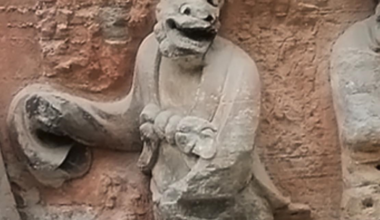
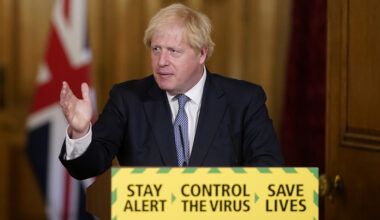
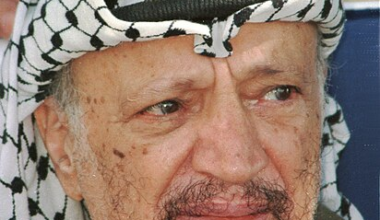
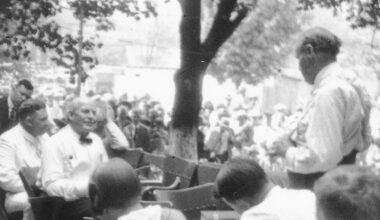
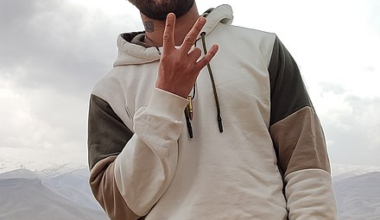

Your email address will not be published. Comments are subject to our Community Guidelines. Required fields are marked *
Donate